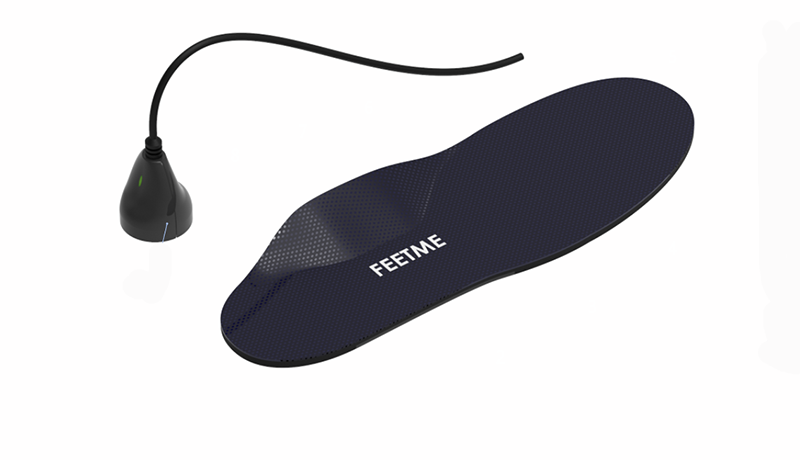The style and the pace of our walk can be influenced by both our physical and mental states. For example, a person with heart disease or Alzheimer’s walks slower than normal people. Some conditions make their mark on a person’s walking style in other ways, such as asymmetrical steps and uneven distribution of weight over the bottom of the foot. There are various tools available for monitoring a person’s walking gait. Now, a Paris-based company, FeetMe has developed a smart shoe insole that can monitor a patient’s gait throughout the day.
Related GPS Tracking Insoles to Track Location of People with Dementia
FeetMe signed a partnership deal with Swiss pharmaceutical company Novartis to study whether its technology can help to monitor disease progression in multiple sclerosis (MS) patients.
“The first step of the partnership is to validate the accuracy of our measurements among Multiple Sclerosis patients against clinical standards (Gaitrite and clinical scales). We will then build new markers out of the data collected in order to better assess MS patients in real world setting. This collected data has for objective to help physicians better assess the transition between RRMM and SPMS with continuous quantitative real-world gait measurements,” Alexis Mathieu, CEO of FeetMe told MedGadget.
“The tool is also designed to better understand disease evolution and symptomatic effects of different treatments through continuous home measurements.”
Multiple sclerosis is a nervous system disorder in which the insulating covers of nerve cells in the brain and spinal cord are damaged. This damage disrupts the ability of parts of the nervous system to communicate. Some people with severe MS may lose the ability to walk independently or at all, while others may experience long periods of remission without any new symptoms.
Related Walk on Smart Insoles: The Next Move in Activity Tracking
FeetMe devices combine embedded and miniaturized sensors with smart algorithms to assess mobility in real world non-invasively. The company offers solutions to assess, rehabilitate and assist patients suffering from mobility disorders, including:
- FeetMe Monitor®. A mobile application paired with FeetMe device to visualize mobility parameters. The device collects and analyzes mobility spatio-temporal parameters and their variability over time thanks to smart embedded algorithms and wireless connection.
- FeetMe Rehabilitation®. A real time smartphone-based biofeedback solution composed of their rehabilitation exercises to help patients at home train and improve mobility outcomes. FeetMe associates an online platform where physicians can choose patients’ exercises and follow their progress over time.
- FeetMe Stimulate®. An active device associated with FeetMe device in closed loop using neuromodulation techniques to improve gait quality and capacity in real world setting.










